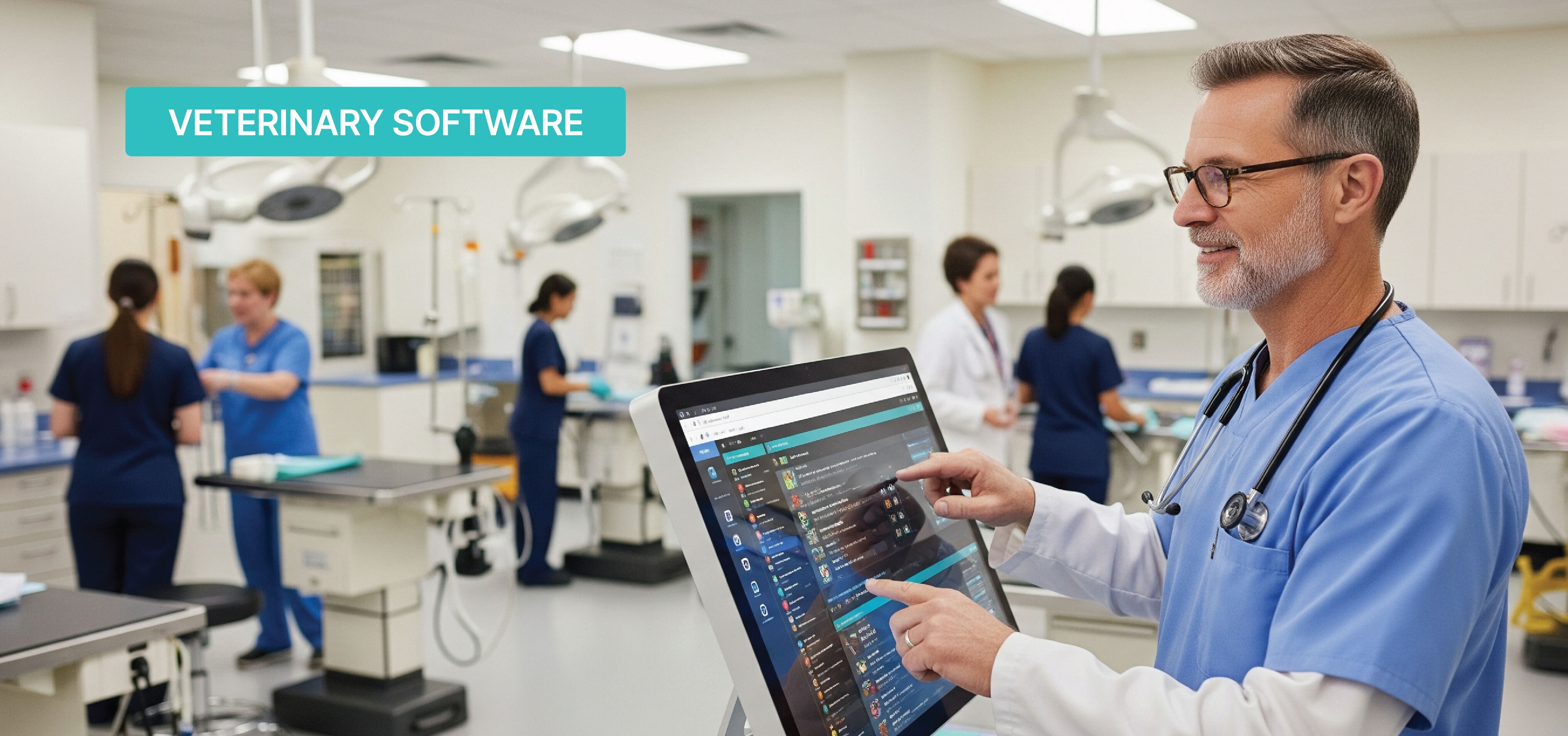

7 Benefits of Using AI in Veterinary Practice Management
Artificial Intelligence (AI) is revolutionizing the veterinary industry, helping clinics modernize operations, enhance care delivery, and improve client communication. As pet owners increasingly expect personalized, digital-first experiences, AI enables veterinary professionals to meet these demands while boosting clinic efficiency.
From automating admin tasks to enhancing medical decision-making, AI is no longer a futuristic concept—it's a practical tool already reshaping veterinary practice management. In this blog, we explore the top 7 benefits of integrating AI into your veterinary workflow and how it can elevate your practice
1. Predictive Scheduling and Appointment Optimization
One of the most significant benefits of AI in veterinary practice management is predictive scheduling. AI-powered systems analyze appointment patterns, case urgencies, and resource availability to automatically schedule appointments that maximize efficiency.
Key Advantages:
- Reduces no-show rates by identifying high-risk cancellations
- Prioritizes critical cases based on clinical data
- Balances vet and staff workload for better time management
AI tools can also send personalized reminders, nudging clients based on past behavior, increasing appointment adherence, and reducing admin follow-up.
2. AI-Powered Diagnostics and Decision Support
Veterinarians often manage complex cases requiring rapid diagnostics and treatment planning. AI helps by reviewing medical records, identifying patterns in symptoms, and suggesting likely diagnoses based on massive databases of clinical cases.
How it Helps:
- Reduces diagnostic errors by providing evidence-based suggestions
- Speeds up decision-making during emergencies
- Assists new or understaffed clinics with smart triage tools
AI doesn’t replace clinical judgment—it augments diagnostic accuracy, ensuring better outcomes for pets.
3. Streamlined Administrative Tasks and Documentation
Veterinary professionals spend a significant amount of time on administrative tasks such as SOAP notes, billing, and inventory management. AI automates much of this documentation using voice-to-text features and smart templates.
Time-Saving Tools:
- Real-time transcription of vet notes during exams
- Auto-filled medical records and invoices
- Digital check-in and consent forms for clients
This means more time for veterinarians to focus on patient care, and fewer errors in medical records.
4. Personalized Client Communication
Effective communication with pet parents is vital to maintaining trust and ensuring compliance. AI enables clinics to send tailored communication based on pet history, breed, age, lifestyle, and treatment timelines.
Real-World Examples:
- Sending nutrition advice to pet owners after lab test results
- Recommending flea & tick medication before summer based on location
- Offering early refill alerts for chronic medications
Such personalization strengthens relationships and keeps clients engaged with their pet’s wellness plan.
5. Automated Inventory Management
Managing medical inventory manually is time-consuming and prone to errors. AI can track stock usage patterns, predict reorder points, and generate purchase orders before a stockout occurs.
Operational Benefits:
- Prevents overstocking or understocking
- Optimizes storage space and reduces waste
- Integrates with billing systems to sync with prescriptions
This ensures that veterinarians always have the right medication and supplies on hand, without overburdening staff.
6. Enhanced Client Retention and Loyalty
AI-driven systems identify when clients are due for services and send reminders or special offers to bring them back in. For example, if a pet hasn't visited in over six months, an AI algorithm may trigger a wellness checkup invite.
Why This Matters:
- Increases preventive care visits
- Reduces client churn
- Builds consistent revenue streams
By showing proactive care and anticipating client needs, clinics can drive better pet health outcomes and client loyalty.
7. Smarter Business Insights and Analytics
AI veterinary software provides powerful dashboards that analyze clinic performance, client engagement, treatment success rates, and even financial trends.
Data-Driven Decisions:
- Measure which services drive the most revenue
- Track appointment types and no-show frequency
- Monitor satisfaction metrics from surveys and reviews
Armed with these insights, veterinary practice managers can make smarter decisions about staffing, marketing, and operations.
Conclusion
AI is not a luxury—it's becoming a competitive necessity in veterinary practice management. By automating routine tasks, enhancing communication, and offering data-driven decision support, AI empowers clinics to deliver higher-quality care, optimize operations, and deepen client relationships.
Whether you're running a solo practice or a multi-location clinic, adopting AI tools can set you apart in an increasingly digital pet care landscape. As the industry evolves, embracing AI is one of the smartest moves you can make for your practice, your staff, and the pets you care for.
Join the hundreds of vet already using Woovet to cut admin time and focus on what really matters.
